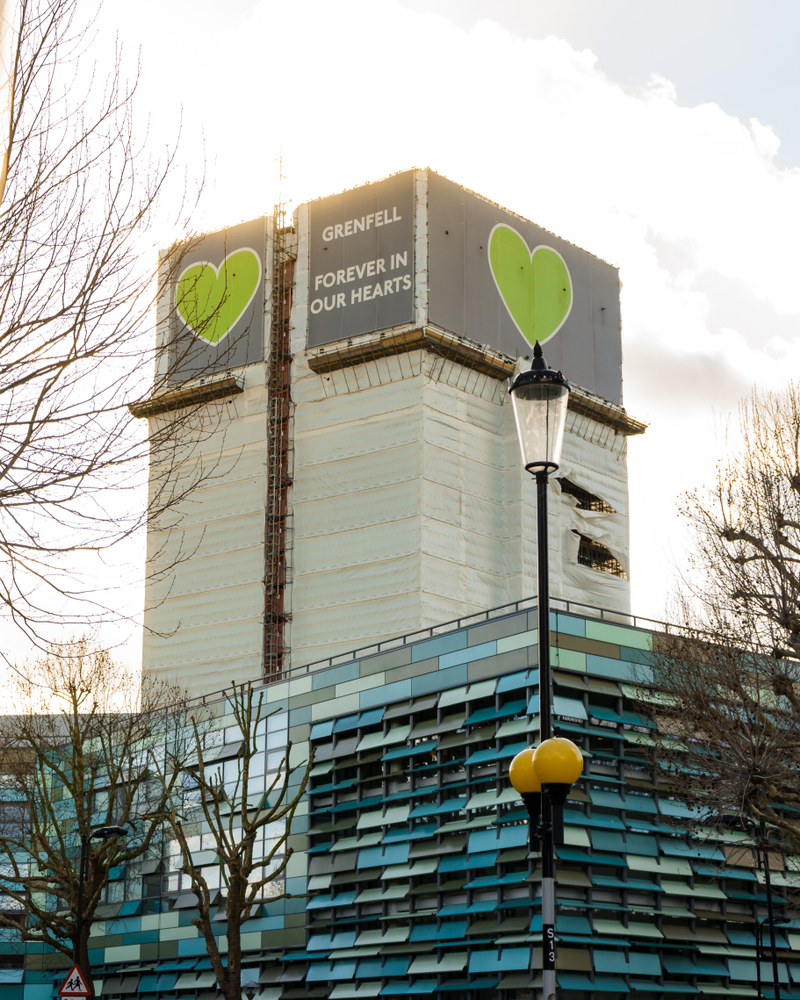Grenfell disaster a ‘direct consequence of government policies’ – FBU
- November 10, 2022
- 10:16 am


Iain Hoey
Share this content
As the Grenfell Tower Inquiry drew to a close, the Fire Brigades Union’s lawyer told the Inquiry that the disaster was: “a direct consequence of a generation of government policies which combined to create a death trap for the residents of Grenfell Tower”.
The comments came in the closing submissions for Phase 2, which covers the run-up to the night of the fire.
Martin Seaward, speaking to the Inquiry on behalf of the union, said that whilst: “The private sector companies involved in the refurbishment [of Grenfell] bear a heavy responsibility… it would be wholly wrong and provide no justice to victims to leave the blame there”.
He continued: “They were encouraged to act by 40 years of political decisions in the service of an ideology [deregulation] based on the prioritisation of commercial interests and profit above all else, including public safety”.
He asserted that the “real culprits” of the disaster were those in power at the top, such as ministers following their “deregulatory agenda” to the detriment of fire safety, and the directors of industry on which they depended for sponsorship and party funding.
Seaward added that deregulation: “Has become synonymous with central government abandoning responsibility for… building regulations, building control, testing and certification, fire and rescue services and fire safety”. He said deregulation policies “tragically came together on 14 June 2017 to create the worst residential fire since 2017” and these policies meant that Grenfell “was a disaster to waiting to happen”.
Seaward described deregulation as part of a set of ideas that drives for a “largely unfettered” free market and a role for the state that “limited to… supporting the free market”, and “prioritises… entrepreneurial freedoms and private business interests”.
He highlighted how ministers pursing this agenda had “deliberately and irresponsibly undermined” a “culture of health and safety”. Regulations were “repeatedly depicted as pointless, time-wasting administrative bureaucracy”. He noted that already-deregulated legislation “has not been effectively enforced” with effective enforcement “instead progressively weakened by successive governments”.
Seaward also highlighted the role of the individual organisations involved in the refurbishment of Grenfell, including the refurbishment that covered Grenfell in cladding that had a flammability which some have compared to petrol.
He said that: “The key players [in the refurbishment] amply demonstrate the widespread disregard of fire safety”. He pointed to cladding manufacturer dishonesty and manipulation, and several agencies including the architects and the design and build contractor failing to complete the fire risk strategy.
Finally, Seaward highlighted the structure of the Inquiry, which first involved a close analysis of the emergency response and then returning to discuss the run-up to the disaster in phase two. He stated that the Inquiry: “Risks distracting from the real causes of the disaster and creating a scapegoat that would allow those truly responsible, including senior politicians and company directors, to evade responsibility”.
He added that “Firefighters risked their lives going into the blazing inferno to try and rescue residents and extinguish the fire. They and the control staff did their duty professionally, bravely and to the best of their abilities in the face of a rapidly developing fire that was beyond anything any of them had ever experienced or trained for. They followed their procedures and applied their training as much as the extreme conditions allowed”.
After this set of submissions there will be a pause whilst the Inquiry prepares its final report, which is likely to be published next year.



